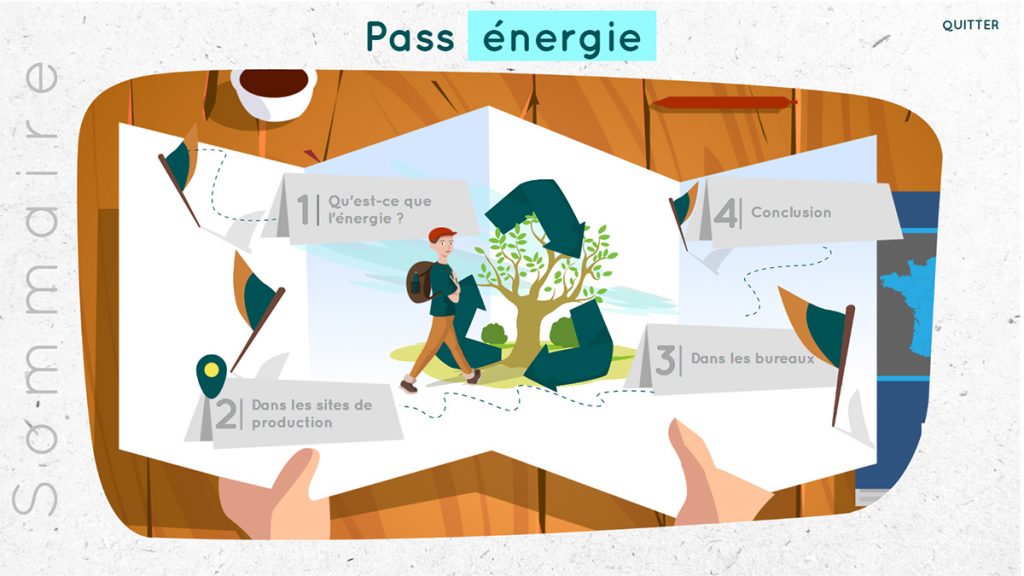Like all industries, the paper and cardboard industry must face the challenge of reducing energy consumption through the adoption of eco-responsible practices. In this context, OPCO2i, a cross-industry skills operator encompassing 32 professional branches, has taken the initiative to rethink dedicated training by offering a short and effective e-learning course.
The e-learning module program, aimed at employees in the sector, is designed to raise awareness about reducing their energy footprint. Structured into five chapters, the training covers the fundamentals of energy efficiency, providing a thorough and practical understanding of this key topic.
DEVICE
Lasting twenty minutes, the module immerses learners in an immersive environment whose decor is inspired by the textures of paper, cardboard and wood. In this Paper-Cardboard universe, learners play the role of testers of a new tourist stay focused on energy efficiency. Accompanied by a virtual guide, they embark on an adventure, simulating a treasure hunt and discover, step by step, the main principles of frugality.
Thus, at the end of the training, the learner is able to define what energy is, to cite the different areas of consumption in the office or factory, and to identify the right reflexes to reduce energy consumption. . If the training is not certifying, it remains accompanied by an additional summative quiz requiring a success rate of 70% for certain companies which wish it.
For an optimal user experience, digital training offers various features, such as the ability to pick up where the learner left off, save their progress and easily navigate between different chapters. The addition of punchy titles and subtitles facilitates understanding, while the interactive activities offered guarantee learner engagement.
TARGET
Employees in the Paper-Cardboard industry sector.
OBJECTIVES
Raise awareness among industry professionals about reducing their energy footprint in their professional practices.

